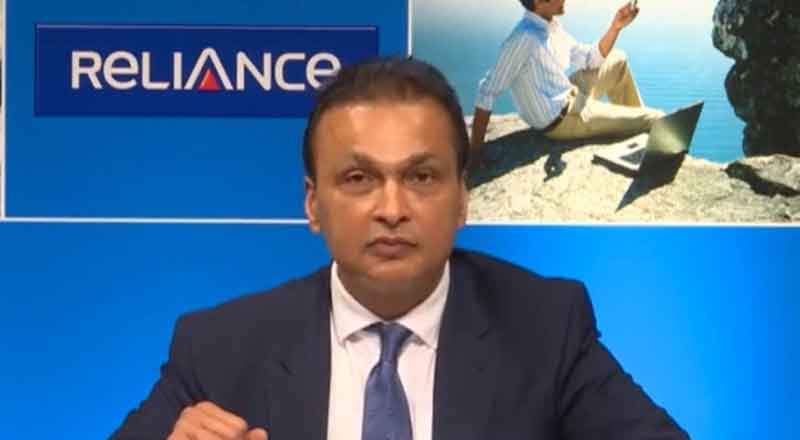- Sebi bars Anil Ambani, 24 entities for 5 years
- Ambani fined Rs 25 crore, banned from securities market
- Reliance Home Finance barred for 6 months, fined Rs 6 lakh
The Securities and Exchange Board of India (Sebi) has taken stringent action against industrialist Anil Ambani, imposing a five-year trading ban and a ₹25 crore fine. This decision, which also impacts 24 other entities including key former officials of Reliance Home Finance Ltd (RHFL), comes after a detailed investigation into the diversion of funds from the company. Sebi’s ruling not only bans Ambani from participating in the securities market but also bars him from serving as a director or Key Managerial Personnel (KMP) in any listed company or intermediary registered with the regulator for the next five years.
Unveiling the Fraudulent Scheme
Sebi’s 222-page final order exposes a well-orchestrated scheme by Anil Ambani and top executives of RHFL to divert funds from the company. The funds, which were meant to support RHFL’s operations, were instead channeled as loans to entities closely associated with Ambani. These loans were extended despite clear directives from RHFL’s Board of Directors to cease such lending practices. Sebi’s findings revealed that the management, under Ambani’s influence, blatantly disregarded these instructions and continued to funnel money through credit-unworthy conduit borrowers, all of whom had direct links to Ambani.
Exploiting Corporate Influence
Sebi highlighted how Anil Ambani leveraged his position as the “chairperson of the ADA group” and his indirect shareholding in RHFL’s holding company to execute this fraudulent scheme. Loans amounting to hundreds of crores were approved for companies that lacked assets, cash flow, or revenue, clearly indicating a deliberate intent to defraud. As these borrowers defaulted, RHFL itself was driven into financial distress, leading to its eventual resolution under the Reserve Bank of India’s Framework for financial restructuring. This financial collapse left public shareholders, including over 9 lakh investors, bearing significant losses. The impact was starkly evident as RHFL’s share price plummeted from ₹59.60 in March 2018 to a mere ₹0.75 by March 2020.
Penalties on Key Figures and Entities
Sebi’s order extends beyond Anil Ambani, holding several key figures accountable for their roles in the fraudulent activities. Former RHFL officials Amit Bapna, Ravindra Sudhalkar, and Pinkesh R Shah were fined ₹27 crore, ₹26 crore, and ₹21 crore, respectively, reflecting their significant involvement in the scheme. Additionally, Sebi imposed fines of ₹25 crore each on several entities, including Reliance Unicorn Enterprises, Reliance Exchange Next Ltd, Reliance Commercial Finance Ltd, Reliance Cleangen Ltd, Reliance Business Broadcast News Holdings Ltd, and Reliance Big Entertainment Pvt Ltd. These entities were either direct recipients of the siphoned funds or played a role as intermediaries in the fraudulent diversion of RHFL’s resources.
Broader Implications
This ruling by Sebi is particularly significant as it follows an interim order from February 2022, which had already barred RHFL, Anil Ambani, and three others from the securities market for allegedly siphoning off funds. The final order reinforces Sebi’s commitment to upholding market integrity and holding influential figures accountable for financial misconduct. The penalties and bans imposed not only serve as a severe punishment for those involved but also send a clear message to the broader financial community about the consequences of such fraudulent activities.
For Anil Ambani, once a prominent figure in India’s business landscape, this ruling marks a significant fall from grace. It also raises questions about corporate governance and the ethical responsibilities of top executives in protecting shareholder interests. As Sebi continues to crack down on financial irregularities, this case stands as a landmark example of regulatory action in India’s financial markets.
(With inputs from agencies)





